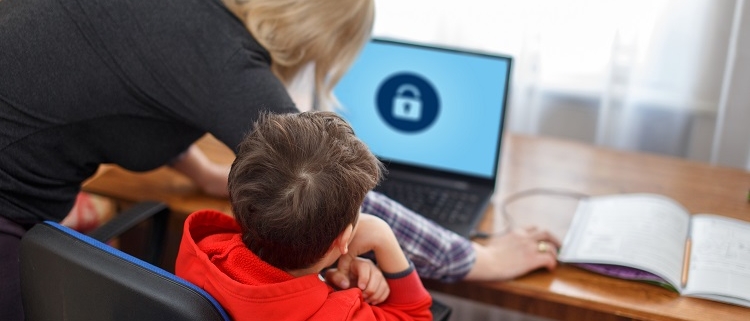Ways to Keep Your Kids Safe Online
The internet is a great place to hang out. Not only can all sorts of information be found there (some correct, some not so much) but it’s also a great way to stay in touch with friends and family.
Sadly, the internet is also a dangerous place to hang out – particularly for children.
Cyberstalkers, child molesters, inappropriate content, cyberbullies, and more are lurking, waiting for an opportunity to reach out to your children. Such an experience could possibly damage a child for the rest of their life.
Here are a few tips to keep your children away from online dangers:
Place your computers in a common area of the house
Don’t allow kids to have a computer in their room. You’d be surprised by how much the mere presence of a parent who may or may not be looking over a child’s shoulder while they use the computer can keep a child in line. They have no way of knowing if your eyes actually are good enough to see across the room, now do they? Make sure the computer’s screen is visible from other parts of the room and isn’t turned toward a wall.
Spend time online with your kids
Make browsing the web a family thing (just like watching television was for most of us when we were kids.) Hang out with your kids and help them with their homework online, searching for information together. Also, make sure to put the Google search filter on “safe.”
Have a conversation with your children
Kids are getting their first internet-connected gadgets at young ages. So, start talking to them early. Warn them about malware, dangerous websites, and sex offenders. Let your kids know you’re looking out for them, speak honestly with them, and listen. After all, if it’s just you talking, it’s not a conversation. It’s a lecture. And no one likes a lecture.
Know your children’s passwords
If you have a younger child, create an account for them in your own name to avoid exposing your child’s name — and so you’ll have the password. But please respect the age limitations on accounts. If a site says you should be 18 to sign up, then maybe your child should wait. Whatever your choice, though, make sure you get their passwords and warn them that you’ll be checking their accounts from time to time to make sure everything’s kosher. (Spying on your kids’ accounts without their knowledge could weaken their trust in you.)
Check your children’s browsing history
Open your child’s web browser and look for “History” to see a list of websites they have been to. Also, check the recycle bin to see if any files have been deleted. You may be surprised.
Set reasonable time and usage limits
Set rules about what your child can and can’t do when on the internet. Set time limits on their computer use. If they say they’re researching homework, maybe you don’t include that in the time limits. But, make sure they are actually using it for homework.
Set parental controls
You can’t be around all the time to monitor your children’s internet usage. One of the best things you can do to prevent your kids from visiting sites that are not appropriate to them is to set parental controls. Check with your Internet Service Provider for any parental controls, blocking, and filtering tools they may offer to make the internet a safer place for your younger family members.
For More Security and Tips and Solutions, Stick with Boyd & Associates
And if you’re looking for more ways to keep yourself and your family safe, check out our home security and automation services at Boyd & Associates. We offer a wide range of home security options to protect you and your family. If you’re ready to discuss our custom solutions, contact us today to learn more about our services and how we can help you prepare for what’s next.
- Managing Security for Easter Gatherings & Increased Foot Traffic - April 10, 2025
- Why Homeowners Are Investing in Security Systems in 2025 - March 27, 2025
- Protect Yourself from Tax Season Scams - March 10, 2025



